
Data Audit for Apache Hive
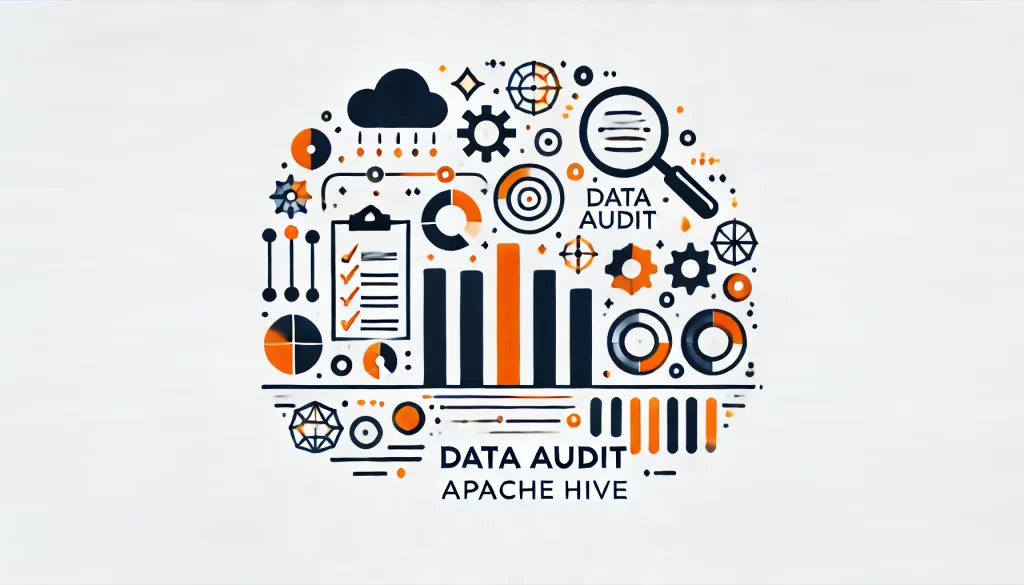
Introduction
In today’s landscape, where data is a critical asset, ensuring its integrity and security is paramount. Apache Hive, a popular data warehouse system, requires robust auditing mechanisms to maintain data quality and compliance. This article delves into the essentials of data audit for Apache Hive, exploring its importance, implementation, and best practices.
What is Database Auditing?
Database auditing is the process of monitoring and recording user activities within a database system. It involves tracking who accessed the data, what changes they made, and when these actions occurred. For Apache Hive, auditing is crucial to maintain data integrity, ensure compliance with regulations, and detect potential security breaches.
Importance of Data Audit in Apache Hive
Compliance and Regulatory Requirements
Many industries are subject to strict data regulations. Hive auditing helps organizations meet these requirements by providing a detailed trail of data access and modifications. For example, healthcare organizations must comply with HIPAA, which mandates strict auditing of patient data access.
Security and Threat Detection
Auditing in Hive acts as a deterrent against unauthorized access and helps identify suspicious activities. By monitoring user actions, organizations can quickly detect and respond to potential security threats.
Data Quality Assurance
Regular audits ensure data accuracy and consistency. They help identify errors, anomalies, or unauthorized changes that could compromise data quality.
Implementing Data Audit in Apache Hive
Enabling Audit Logging
To start auditing in Hive, you need to enable audit logging. This is done by configuring the hive-site.xml file. Here’s an example of how to enable basic audit logging:
<property> <name>hive.server2.audit.log.enabled</name> <value>true</value> </property>
After making this change, restart the Hive service for the settings to take effect.
Configuring Audit Log Details
You can customize the level of detail in audit logs. For instance, to log query execution time:
<property> <name>hive.server2.audit.log.query.exectime</name> <value>true</value> </property>
Using Apache Ranger for Advanced Auditing
For more comprehensive auditing, many organizations use Apache Ranger. It provides centralized security administration and fine-grained access control. To integrate Ranger with Hive, you’ll need to install the Ranger plugin and configure it in the hive-site.xml file.
DataSunrise: Enhanced Data Audit for Apache Hive
While Apache Hive provides built-in auditing features, third-party tools like DataSunrise offer more sophisticated and user-friendly auditing solutions. DataSunrise’s audit tool for Apache Hive enhances database activity monitoring and security with advanced features.
Streamlined Audit Rule Creation
DataSunrise simplifies the process of setting up audit rules in Hive databases. For instance, you can easily configure a rule to audit all CRUD operations (Create, Read, Update, Delete):
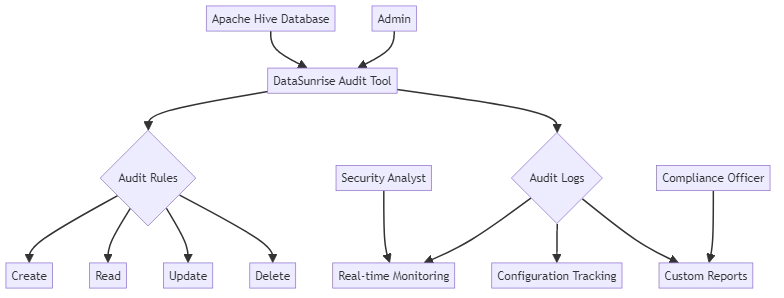
To set up an audit rule:
- Name your rule (for example “Hive_data_audit”)
- Select the Hive database instance
- Configure default settings for auditing all queries
Selecting DB instance:
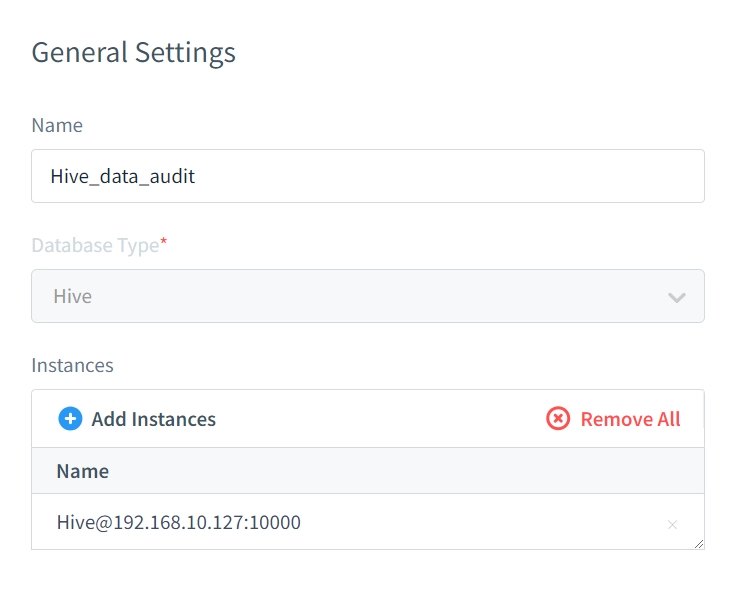
Configure action settings for seeing result in “Transactional Trails”:
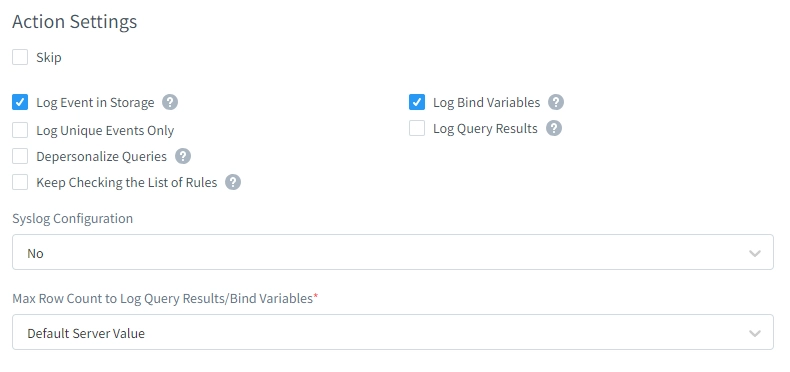
Configure filter statements for logging all CRUD operations, if you’re interesting of Where & Join checkbox, you can visit our demo and ask questiones.
Comprehensive Query Logging
After executing a query like:
SELECT * FROM users;
We will see query result like:
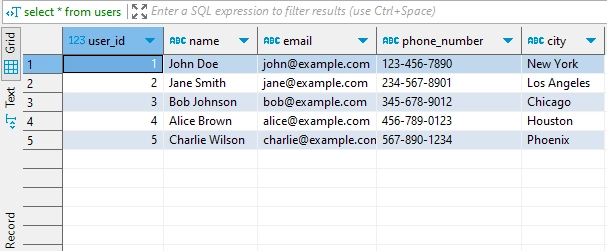
In “Transactional Trails” we will see result like:
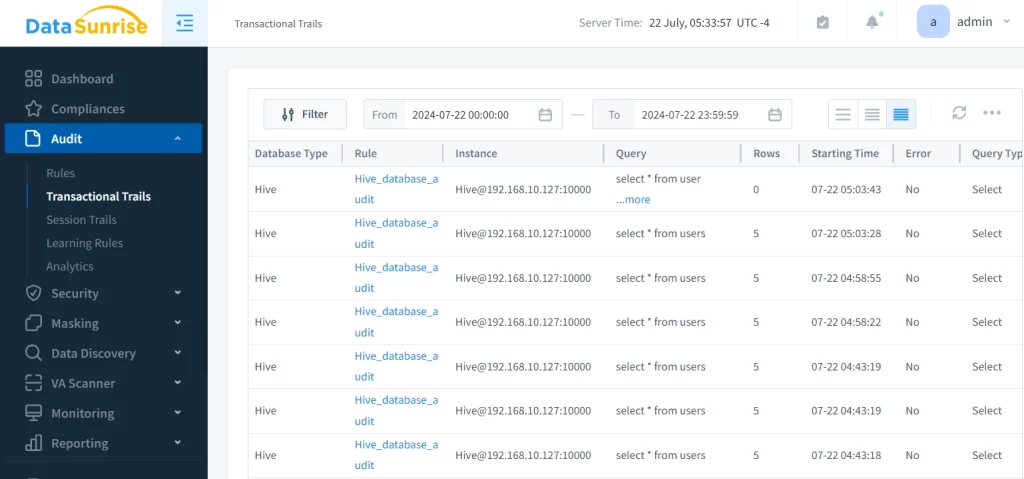
DataSunrise captures extensive details in its audit log, including:
- The full query text
- Timestamp
- User information
- Client application
- Source IP address
This detailed logging provides a comprehensive audit trail for all database activities.
Key Advantages of DataSunrise for Hive Auditing
- Real-time Monitoring: Instantly track and visualize user actions on the database.
- Configuration Tracking: Monitor changes in database settings to maintain security baselines.
- Flexible Log Storage: Choose between the built-in SQLite database or external databases for log storage.
- Custom Audit Rules: Create targeted rules based on databases, users, IP addresses, or applications.
Business Benefits
- Thorough Audit Coverage: Capture a wide spectrum of database activities for a complete audit trail.
- Simplified Compliance: Meet regulatory requirements with detailed, customizable reporting.
- Optimized Performance: Efficient auditing with minimal impact on database operations.
- Insightful Analytics: Analyze audit data to identify patterns and potential security risks.
By implementing tools like DataSunrise, organizations can significantly enhance their Apache Hive auditing capabilities. This leads to improved security measures, easier compliance management, and more robust data governance overall.
Best Practices for Data Audit for Apache Hive
Regular Audit Reviews
Schedule regular reviews of audit logs to identify patterns, anomalies, or potential issues. This proactive approach helps maintain data integrity and security.
Audit Log Retention
Establish a policy for audit log retention. The duration should comply with industry regulations and organizational needs. For example, some financial regulations require log retention for up to seven years.
Automated Alerting
Set up automated alerts for specific events or thresholds. This could include alerts for failed login attempts, unusual data access patterns, or large-scale data modifications.
Audit Log Security
Secure your audit logs to prevent tampering. Use encryption and access controls to protect the integrity of the audit trail itself.
Challenges and Considerations
Performance Impact
Extensive auditing can impact system performance. Strike a balance between comprehensive auditing and maintaining acceptable query response times.
Storage Requirements
Audit logs can grow rapidly, especially in high-traffic environments. Plan for adequate storage and implement log rotation policies.
Privacy Concerns
Ensure that audit logs don’t capture sensitive information that could violate privacy regulations. Be mindful of logging data and monitoring who can access the logs.
Conclusion
Data auditing in Apache Hive is essential for maintaining data integrity, ensuring compliance, and enhancing security. By using strong auditing and best practices, organizations can keep their data safe and gain trust from stakeholders. Regular reviews and continuous improvement of audit processes will help adapt to evolving data landscapes and security challenges.
Next
